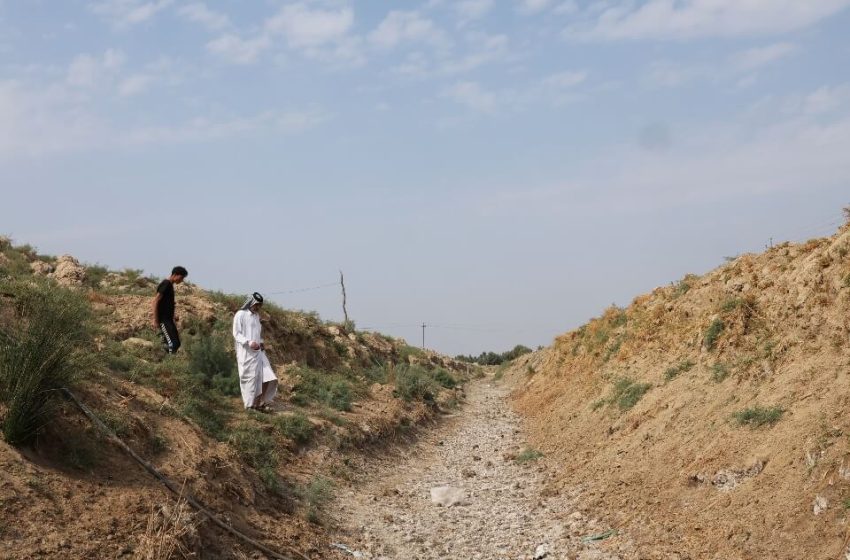Climate change crisis threatens Iraq

Two Iraqi citizens walk across arid land in Al Bu Ruwayyshid village, Diwaniya, Iraq. Photo: Reuters
Baghdad (IraqiNews.com) – The Iraqi government is working to tackle the water scarcity crisis that the country suffers from.
Pictures described as ‘terrifying” have spread lately showing the continued decline in the level of the Tigris and Euphrates rivers, an issue that became a major concern in the country that witnessed the first human civilizations.
Pictures spread on social media show the bottom of the Tigris and Euphrates rivers in some areas, especially in the southern and southeastern governorates, to the extent that a person can cross from one bank to the other on foot, while that was impossible before and required bridges or boats to cross the rivers.
Iraq’s needs for water are about 71 billion cubic meters. The available water is expected to decline to 51 billion cubic meters annually after all dam projects outside Iraq are completed.
The minimum water consumption in Iraq is about 53 billion cubic meters annually, while Iraq needs 70 billion cubic meters to meet all its needs.
River water in good seasons in Iraq is estimated at about 77 billion cubic meters, and in dry seasons, about 44 billion cubic meters.
The flow of water coming from Turkey and Iran has declined during the past few years, as the water of the Tigris and Euphrates rivers coming from Turkey constitutes 70 percent of the water reaching Iraq, while the percentage of water coming from Iran through some small rivers constitutes about 12 percent.
The rest of the water in Iraq comes from rain, lakes, water reservoirs, and groundwater.
Between 2003 and 2018, the marshlands witnessed a significant decline in the water level until they were hit by a major drought, which led to the deaths of thousands of animals and fish in addition to the migration of the local population to search for water sources.
There are many reasons behind the water crisis in Iraq. These reasons include climate change, precipitation, weak snow cover, and a significant rise in temperatures, according to the Iraqi Ministry of Water Resources.
